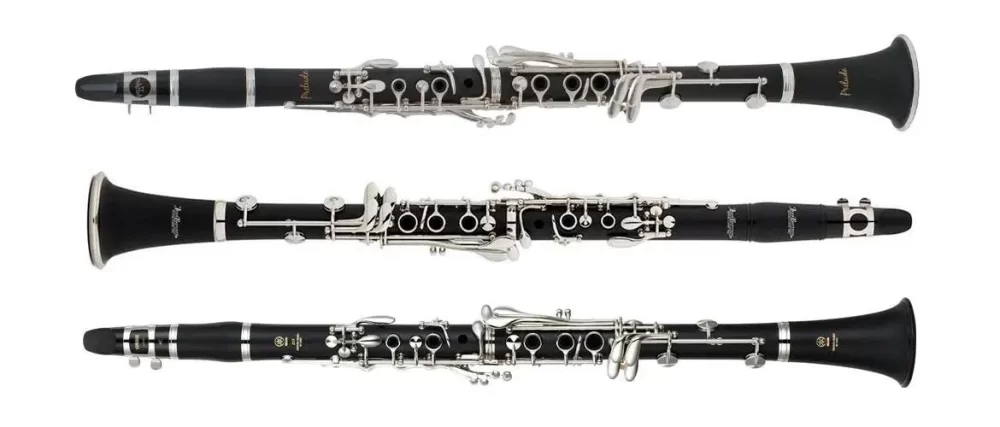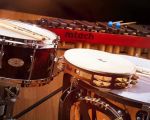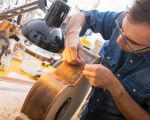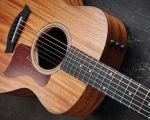
The Perfect Clarinets for Beginners: A Personal Journey into Music
As a beginner musician, choosing the right instrument is crucial to shaping your musical experience. My journey with the clarinet started when I was looking for the perfect blend of affordability, ease of play, and sound quality. I remember the overwhelming feeling of walking into a music store, unsure where to start. There are so many options, and it can be confusing to know which one will be the best fit for you. If you're a beginner just like I was, don’t worry—I’ve done the research and testing for you! In this guide, I'll share my personal insights on the best clarinets for beginners to help you get started on the right note.
Why Choose the Clarinet?
When I first picked up a clarinet, I was drawn to its rich, warm sound and its versatility across a wide range of musical genres. The clarinet is a wind instrument that offers a lot of room for growth. It’s used in everything from classical orchestras to jazz bands, making it a great choice for someone who wants to explore different styles of music. As a beginner, you’ll find that the clarinet is relatively easy to pick up but still challenging enough to keep you engaged as you progress. Plus, the clarinet is portable and light, making it a convenient option for students and musicians on the go.
What to Look for in a Beginner Clarinet
Before you start shopping for a clarinet, it’s important to know what to look for. As a beginner, you won’t need the high-end features of professional clarinets, but you still want something that feels comfortable to play and provides good sound quality. Here’s a breakdown of what I found helpful when choosing a clarinet:
- Material: Most beginner clarinets are made from either plastic or wood. Plastic clarinets tend to be more affordable and durable, making them ideal for younger players or those just starting. Wood clarinets offer a richer tone, but they come with a higher price tag and require more maintenance. For my first clarinet, I went with a plastic model because it was easy to take care of and I didn’t have to worry about warping in different weather conditions.
- Key Mechanism: The mechanism refers to the keys on the clarinet. Beginner clarinets usually have simple key systems, which make them easier to play and maintain. Make sure the keys are easy to press and are well-aligned. You don’t want to deal with misaligned keys when you’re just learning the basics.
- Comfort: Make sure the clarinet feels comfortable in your hands. The weight and size of the instrument should suit you, especially if you’re a younger or smaller player. I found it helpful to test different models and see how each one felt when I held it. A comfortable grip will help you play for longer periods without strain.
- Price: As a beginner, you don’t need to invest a fortune. Many quality beginner clarinets are available at affordable prices, and spending more money doesn’t always guarantee a better playing experience. I found that focusing on reputable brands that specialize in beginner instruments was the key to finding a great deal.
The Best Clarinets for Beginners: Top Picks
After trying out several models, I’ve narrowed down my top recommendations for beginner clarinets. These instruments offer great value for money and provide a solid foundation for anyone starting their musical journey.
1. Yamaha YCL-255 Standard Bb Clarinet
The Yamaha YCL-255 is a popular choice among beginner clarinet players, and for good reason. This plastic-bodied clarinet is durable and lightweight, making it an excellent option for students. It has a smooth key mechanism that’s easy to use, and the sound is surprisingly rich for a beginner model. I was particularly impressed with its ease of play and the fact that it stayed in tune even after extended use. The Yamaha YCL-255 is often recommended by music teachers for students because it’s reliable and offers great value for money.
2. Buffet Crampon E11 Clarinet
If you’re looking for something with a little more sophistication and you’re willing to invest a bit more, the Buffet Crampon E11 is a fantastic option. This wood clarinet produces a warmer, more nuanced sound compared to plastic models. While it’s a bit pricier, the Buffet Crampon E11 is a great investment for beginners who are serious about their music and want an instrument that will grow with them as they progress. The keywork is smooth, and the construction is sturdy, making it an ideal choice for students who want to take their playing to the next level.
3. Selmer 1400B Clarinet
The Selmer 1400B is another great choice for beginners, offering a balance of quality and affordability. It’s a plastic-bodied clarinet, which is perfect for new players who want something durable and low-maintenance. The Selmer 1400B has a rich sound for a beginner instrument, and its ergonomically designed keys make it easy to play. I found it to be a solid option for someone who is just starting but still wants an instrument that will allow them to develop their skills over time.
4. Jean-Paul USA CL-300 Clarinet
For those on a tighter budget, the Jean-Paul USA CL-300 clarinet is an excellent entry-level option. This plastic clarinet offers excellent value for money and is a great option for beginners who are just starting to explore music. It’s easy to play, lightweight, and durable, making it perfect for students and young musicians. The sound quality is good for the price, and the overall build is solid. If you’re looking for something affordable yet reliable, this is definitely worth considering.
Tips for Getting Started with the Clarinet
Once you’ve chosen your clarinet, it’s time to start playing! Here are a few tips that helped me as a beginner:
- Practice Regularly: Consistent practice is key to improving. Start with short sessions and gradually increase the time as you build your stamina and skill.
- Focus on Technique: Proper finger placement and breathing are crucial for producing a good sound. Make sure you’re practicing proper posture and technique from the very beginning to avoid developing bad habits.
- Learn the Basics: Familiarize yourself with the basics of music theory, note reading, and rhythm. This knowledge will serve as the foundation for everything you play on the clarinet.
- Take Lessons: Whether in-person or online, lessons can be incredibly helpful. A good teacher can provide valuable feedback and guide you through the learning process.
Starting with the right clarinet can make all the difference in your musical journey. I hope this guide has helped you find the perfect instrument and given you the confidence to start playing. Remember, the key to success is practice and patience, and with the right clarinet, you’ll be on your way to making beautiful music in no time!








